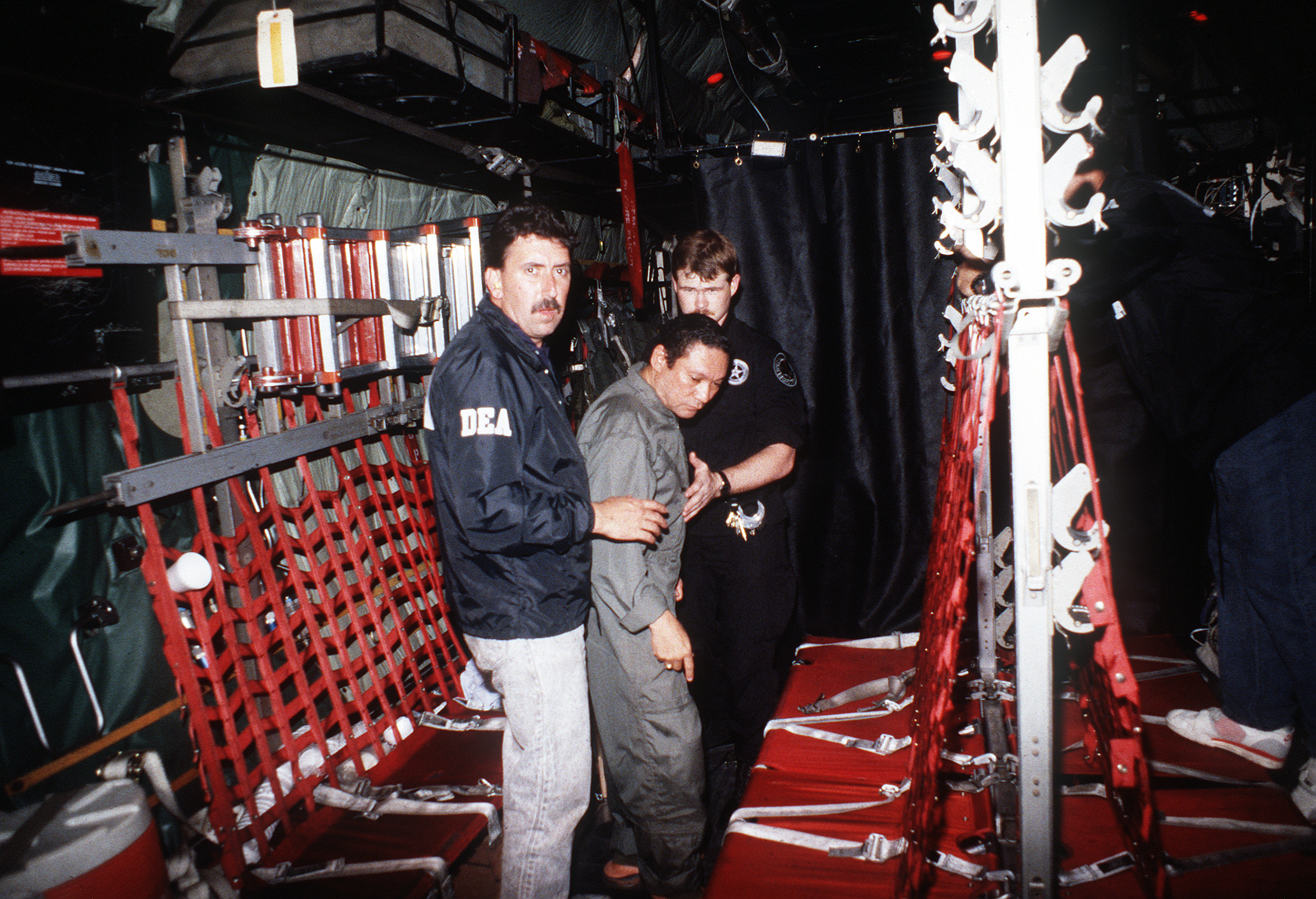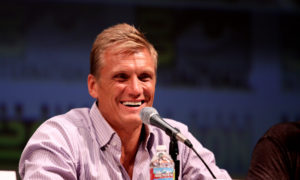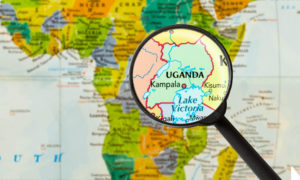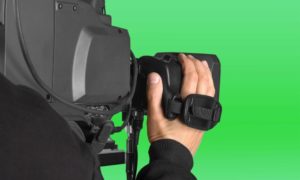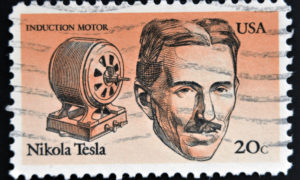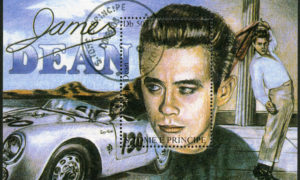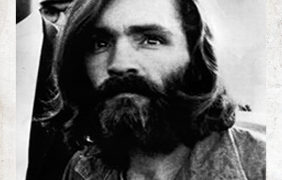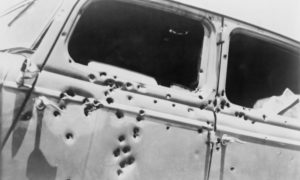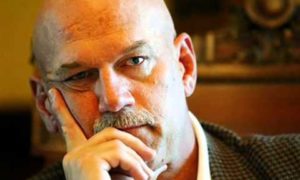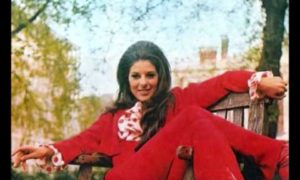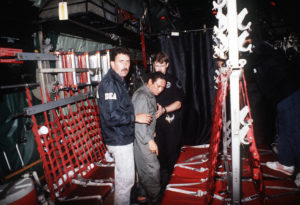 For almost a decade, Manuel Noriega was the face of the corrupt and notorious Panamanian government, earning him the title of the “strongman of Panama”. Early in his career, he was considered to be an ally of the United States as he provided valuable assistance to the country as an informant for the C.I.A. Later on, however, Noriega became an enemy of America due to his illegal dealing with drugs. In 1989, the United States government drove him out of Panama which ended his control of the country’s puppet government.
For almost a decade, Manuel Noriega was the face of the corrupt and notorious Panamanian government, earning him the title of the “strongman of Panama”. Early in his career, he was considered to be an ally of the United States as he provided valuable assistance to the country as an informant for the C.I.A. Later on, however, Noriega became an enemy of America due to his illegal dealing with drugs. In 1989, the United States government drove him out of Panama which ended his control of the country’s puppet government.
Even though he was born in a poor family in Panama City, Manuel Antonio Noriega received a privileged level of education. After graduating from the National Institute, one of Panama’s leading high school, he attended the Chorrios Military Academy in Peru under a scholarship and graduated with an engineering degree in 1962. In 1967, he trained for the intelligence and counterintelligence programs under the U.S. Army’s Fort Gulick in Panama. He also took a course at Fort Bragg in North Carolina for psychological operations. From the late 1950’s, he worked for the United States’ Central Intelligence Agency as an informant, although he only received his formal contract in 1967. This working relationship continued up until 1980.
In 1967, he was commissioned to be a sub-lieutenant of the Panama National Guard where became acquainted with Colonel Omar Torrijos. He was promoted to lieutenant in 1968 and Torrijos gave him the command over Chiriqui. In 1968, Torrijos’ group led a military coup over the rule of President Arnulfo Arias. Through Noriega’s efforts, Torrijos was able to claim the capital, which led to his rise to power. For Noriega’s loyalty, he was promoted to lieutenant colonel as well as the chief of military intelligence.
During this time, Noriega was still involved with the CIA. Although issues of his illegal dealings with drugs already surfaced at this time, he was proven to be of great assistance to U.S. President Richard Nixon, so much so that Noriega’s planned assassination did not follow through. Being the head of military intelligence, Noriega was considered as one of Panama’s most feared men. He was known for his intimidation and harassment tactics towards opposition groups, wherein people caught criticizing Torrijos’ government were rounded up and were exiled to Panama.
In 1981, Torrijos died in a mysterious plane crash and for two years, politicians and military officers contested over the rule of the country. In 1983, Noriega became the commander of the National Guard and he promoted himself to general. He then merged the Guard with the Navy, Air Force, and the National Police to create the Panama Defense Forces. During this time, he forged a stronger relationship with the United States, extending new rights to the American government despite the existing canal treaties.
In 1984, Noriega opened the first presidential election after 16 years. Noriega’s candidate, Nicolas Barletta, won by a slim margin, although the initial results foretold of Arias’ landslide victory. Noriega was openly and heavily criticized by Hugo Spadafora, who accused Noriega of drug trafficking. Spadafora was later found dead and extremely tortured. Because of this, Barletta was pressured by the United States to investigate in the case of Spadafora.
Not one to be implicated of the crime, Noriega forced out Barletta from his position and replaced him with the First Vice President, on the grounds that Barletta was doing a poor job as Panama’s president. However, the United States considered Barletta as a person of great value and his dismissal led to the downward spiral of America’s relationship with Noriega. At this time, suspicions of Noriega’s illegal activities which included drug dealing, gun smuggling, money laundering, murder, and selling classified C.I.A. information to the Cuban and Eastern European governments, already surfaced. In 1987, an interview with Colonel Roberto Diaz Herrera revealed the string of Noriega’s wrongdoings, including his involvement in Torrijos’ death, the killing of Spadafora, rigging of the 1984 election results, as well as his involvement in other killings and tortures. This led to a public outcry and rallies which was led by the Civil Crusade, a group which publicly opposed Noriega. As a response, Noriega declared a national emergency and suspended constitutional rights. Political enemies were put into exile and rallies were brutally dispersed.
In May 1989, Noriega backed Carlos Duque for presidency while the United States supported Guillermo Endara. When the votes came in and showed that people were in favor of Endara, Noriega announced that the election results were void and proceeded to name Francisco Rodriguez as acting president. By this time, the U.S. Senate demanded Noriega’s removal under the administration of President Ronald Reagan. The U.S. ended their military and financial support to Panama, while investors in the country have also withdrawn their backing towards Panama’s main military man.
In 1988, the US Justice Department filed federal court charges against Noriega. The interception of the United States took into full action on December 20, 1989. After days of escaping and hiding, Noriega was captured at the Apostolic Nunciature. He finally surrendered on January 3, 1990 and the U.S. officials brought him to Miami for trial. In April 1992, Noriega was convicted of money laundering, drug trafficking, and drug racketeering. He was sentenced to 40 years in prison and was demanded to pay a fine worth $44 million. The sentence was later reduced to 20 years.
In 1999, both the French court and the Panamanian high court sentenced Noriega for drug trafficking and human rights violation, respectively. In August 2007, French government’s request for Noriega’s extradition from the U.S. to France was approved. After almost 18 years in U.S. prison, Noriega was transferred to La Sante Prison in France. He was sentenced to seven years in jail and his frozen account worth $3.6 million was also seized by the French government. In December 2011, he was extradited to Panama.
In 2015, Noriega released a statement asking for forgiveness on behalf of the members of Panama’s last military era. At 82 years old, the strongman of Panama is already suffering from the effects of aging and is due for a surgery for brain tumor. His continuous request for house arrest has been constantly declined by the Panamanian government.

